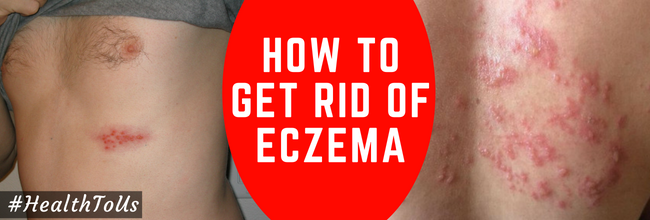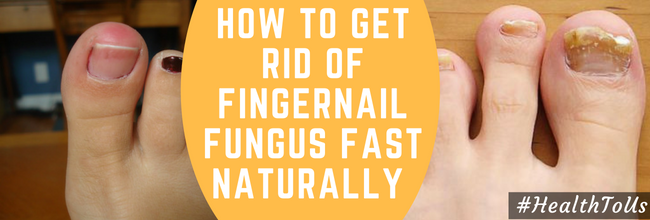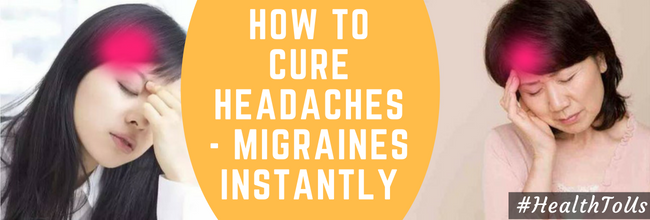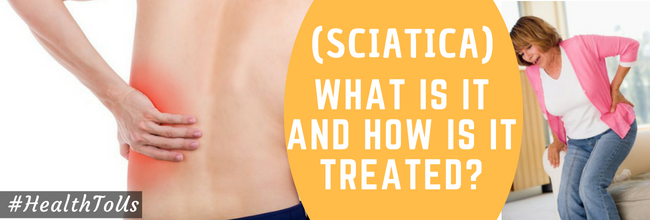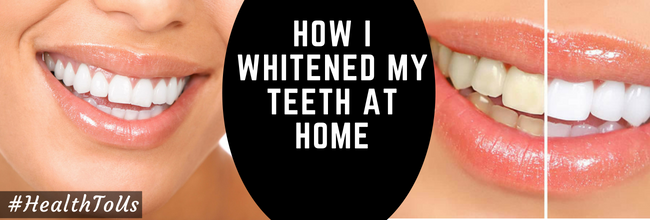
People dealing with psoriasis feel as if they have an uninvited guest in their body. Psoriasis is a skin condition that is embarrassing and frustrating. When it first shows up, the skin will appear inflamed, red and dry. Scaly patches will start to form on the skin.
Not only are these flare-up annoying, but individuals who are forced to deal with this skin conditions are left feeling self-conscious about their body. Individuals who have psoriasis find it hard to do something as simple as going in a grocery store, without covering their skin up. Even more frustrating is the fact that there is no magic formula that can be used in order to get rid of the skin condition right away. The “victim” will need to learn how to deal with those flare-ups when they show up – they need to take good care of their body and their skin.
There are measures that can be taken in order to prevent outbreaks. If psoriasis leaves the skin dry with red patches, it is important that you treat it right away. In the paragraphs below, we are going to tell you about 28 home remedies for psoriasis– some of these remedies consist of ingredients that you may already have in your kitchen.
What Psoriasis Does to the Skin
Skin naturally goes through a month-long cycle. New cells develop deep within your skin and over a period of around 30 days, the new skin cells make their way to the top. By the time this is done, the old skin cells have died and have been pushed off by your everyday routines, such as showering.
When an individual has psoriasis, the process, however, goes into fast-forward. The entire process that we just explained in the above paragraph takes place in three or four days. When this happens, it causes a buildup of those dead skin cells on the surface of your skin. This usually happens in patches, mostly on the lower back, knuckles, elbows, knees and scalp. The technical terminology used to describe these irritating, dry scaly patches is plaques.
What is Psoriasis?
To be honest, no one is quite sure what psoriasis really is. Is it an allergy? An infection maybe? Even with the advances in technology, the causes of this condition have remained a mystery. Research has showed that around thirty two percent of psoriasis cases, there is a family history of the problem. This means if you have someone in your family who has psoriasis, you are at a higher risk of developing it. Despite all the research that has been done, doctors are not sure if there are even any specific lifestyle factors that can trigger this condition or make it worse. Being overweight, drinking alcohol, anxiety, stress, overuse of certain medications and sunburn has a tendency to make this condition unbearable.
While it looks as is psoriasis is contagious, it really isn’t. Some individuals develop mind conditions that cause small patches of red scales to show up on their skin, while others are plagued by the condition as it covers large areas of their body with scales that are thick. Some people actually develop psoriasis in their fingernails and toenails, causing the nail to look malformed and in some cases, the nail may break away. There are rare cases where a form of arthritis may develop– it’s called psoriatic arthritis.
While there is no way to eliminate psoriasis completely, there are steps to take in order to avoid it and help the body recover more quickly. In order to prevent infection, the skin that is around the affected psoriasis should be kept clean at all times. Now, in the next section, we are going to discuss those natural remedies for psoriasis we previously told you about.
Soak Your Body
Shower, swim and soaking in a tub will help rehydrate your skin. Applying a wet compress to your skin can also help remove those thick scales, without causing any damage to the skin. The thick scales can shield the skin from ultraviolet light and medications, which is why it is important to eliminate as much scale as humanly possible. Soaking frequently in the tub will also help reduce the redness and itching – take note that the temperature should be on the tepid side, because hot water can cause the skin to itch even more.
Don’t Forget to Moisturize
It is important that you moisturize, because when skin is dry, it can bleed, crack and develop an infection. By moisturizing, you will not only be preventing dry skin, you will also be reducing inflammation. We recommend you using the heaviest moisturizers, because they wok best as far as making sure the water is locked into the skin. From personal experience, we have found that moisturizers with ingredients such as lactic acid will do the job. Some individuals use cooking oils, petrolatum and lard as a moisturizer and there is nothing wrong with this. After you step out of the shower, apply the moisturizer on your skin – this way, your body will hold in the water and natural oils. Moisturizers that are thick, such as Aquaphor, Neutrogenia Norwegian Formula Hand Cream and Eucerin are effective.
Consider the Humidity Levels
When an individual has psoriasis, dry indoor air can be a disaster. In order to raise the humidity level in the home, a room humidifier is recommended.
Pay Attention to Your Medications
There are various medications, including beta blockers (like INderal), antimalarials and lithium that can make the symptoms of psoriasis worse. Make sure your doctor treats you according to your skin condition and if a medication seems to be causing you problems, speak with your doctor about an alternative prescription.
What Type of Soap Do You Use?
You need to put a lot of consideration into the soaps you use on your skin. There are various types of soaps that can irritate the skin and dry it out. You should stick with soap that is mild. There are many mild “super fatted” soaps that contains moisturizers like Alpha, beta, Purpose, Keri, Nivea Cream Bar and Oilatum.
Watch Which Skin Products You Use
It is important that you watch which skin products you use. When an individual has psoriasis, their skin will be susceptible to irritating substances. Products, including straighteners, perming solutions and hair dyes should be used with caution. When you have open wounds, you need to avoid using those potential irritants all together.
Try Not to Injure Your Skin
Even simple mild injuries such as a scratch or sunburn can cause the symptoms of psoriasis to worsen. At the same time, you must avoid irritation that comes with wearing tight clothing.
Lose Some Weight
Do you feel as if you are overweight? If so, it wouldn’t hurt to lose a couple of extra pounds. When you are overweight, the psoriasis will be uncomfortable and even harder to control.
Currently, there is no cure for this skin condition, but that doesn’t mean there isn’t any treatments available. Through natural treatments and self-help steps, living with psoriasis will be easier. In the next section of this article, we are going to tell you about some natural remedies that are commonly used by individuals who are dealing with psoriasis. After you receive approval from your doctor, move forward and create a self-care regimen that will come in handy for you.
Psoriasis Home Remedies That Come from your Cupboard
Make a Vinegar Dip to Relieve the Itching
Have you ever heard of a vinegar dip? Apple Cider vinegar and aloe has a history of being places on skin inflammations and burns in order to soothe the pain – they are also used as a disinfectant. According to the Psoriasis Foundation, individuals with psoriasis have reported success when using a vinegar dip. As a liquid, it is good to soak toenails and fingernails – simply pour it in a bowl and dip your nails in it for a couple of minutes. Would you like to make your own vinegar dip? Take 1 gallon of water and add one cup of apple cider vinegar to it. Soak a washcloth in the liquid and apply it to your skin – this concoction will help ease the itching.
Don’t be Afraid of the Plastic Wrap
For years, doctors have recognized the plastic wrap as a way to help the psoriasis lesions go away. This amazing “cover-up” technique will also help work certain medications into your skin and it helps lock moisturizers in place. This may seem a bit awkward at first, but you will get used to it. You can either purchase the special OTC patches or use kitchen wrap straight out of your cabinet. Take the medication that has been prescribed to you or the moisturizer and apply it to the damaged area, then put the wrap on. Do not keep the wrap on too long or the skin will become soggy underneath and when skin is soggy, it is more susceptible to developing an infection. If you need specific instructions, you should speak with your doctor regarding the plastic wrap.
Bring on the Warm Olive Oil
Do you have olive oil in your kitchen? If not, you may want to get some. If psoriasis scale is a problem you are dealing with on your scalp, take some warm olive oil and massage it into your scalp. To remove it, simply use your shampoo and rinse it as you normally would.
Baking Soda Will Be Your Best Friend
Do you have scaly patches that are really itching you? If so, this next recipe is going to be great for you. Take 1 ½ cups of baking soda and mix it into 3 gallons of water – use a washcloth to apply this concoction to your skin.
Epsom Salts Are Great
When you take a warm bath, go ahead and add some Epsom salts to the water. The Epsom salts will help heal your skin and bring the swelling down to a normal level.
How About Some Mineral Oil?
Mineral oil is a good skin soother. It wouldn’t hurt to add a dab of mineral oil to your water and soak in it.
Olive Oil and Milk
Take two teaspoons of olive oil and add it to a glass of milk, then place the concoction in your bathwater.
Vegetable Oil is for More Than Just Cooking
You can use vegetable oil for numerous things, besides cooking. For example, adding a cupful of vegetable oil to your water before taking a bath will help ease the symptoms of psoriasis.
Let’s Look at That Spice Rack
Do you have Cayenne pepper on your spice rack? Cayenne pepper contains Capsaicin – the substance that is responsible for making the pepper spicy. By eating it, it will help relieve the itching and pain, because it blocks those sensory nerves. There are creams, which contain capsaicin and those help eliminate psoriasis plaques. Try to get a cream that contains between .024 to .075 percent capsaicin – if you use a cream that contains a higher percentage, your skin will be burning. You will not feel the effects right away – it will take up to a week before you start to notice that the cream is working. When you apply it to plaques, you may feel a slight burning sensations.
Let’s Take a Look at the Supplement Shelf
On the supplement shelf, we have some fish oil. Numerous studies have linked the omega-3 fatty acids, which is in fish oil, to improvement in psoriasis patches. One study has people place fish oil on their psoriasis patch, which helped with the healing process. There are various forms of creams available on the store shelf that contain fish oils.
Let’s Take a Look in Your Medicine Cabinet
Look at the Tar
Shampoos, bath additives and creams that contain tar will help loosen those annoying psoriasis scales. Bath oils that contain tar are even more beneficial for psoriasis.
How About Some Salicylic Acid?
Salicylic acid can be used in order to remove scales. Creams, shampoos, gels and various other psoriasis treatments contain salicylic acid and they are sold over the counter.
Salicylic acid can be used in order to remove scales. Creams, shampoos, gels and various other psoriasis treatments contain salicylic acid and they are sold over the counter.
You may Want to Look Into OTC Cortisone
There are medications containing one percent cortisone that are available without a prescription – Cortaid is a brand you may have heard of before. This “medication” can help eliminate the irritating and itching that you feel with psoriasis. Before you start using these medications, it would be a good idea to talk with your doctor and get the “OK.” Also, make sure you do not overuse topical steroids like Cortisone, because it can cause the skin to thin, making it easy for your skin to bruise.
There are medications containing one percent cortisone that are available without a prescription – Cortaid is a brand you may have heard of before. This “medication” can help eliminate the irritating and itching that you feel with psoriasis. Before you start using these medications, it would be a good idea to talk with your doctor and get the “OK.” Also, make sure you do not overuse topical steroids like Cortisone, because it can cause the skin to thin, making it easy for your skin to bruise.
Say Hello to That Aloe Plant
The gel that is inside the Aloe Vera plant is well known for healing minor burns and wounds. If you would like to try this, snip a piece off of the aloe plant, cut it open and smear the gel onto your plaques. You may also want to purchase pure aloe vera, which can be found in most health-foot stores and pharmacies.
The gel that is inside the Aloe Vera plant is well known for healing minor burns and wounds. If you would like to try this, snip a piece off of the aloe plant, cut it open and smear the gel onto your plaques. You may also want to purchase pure aloe vera, which can be found in most health-foot stores and pharmacies.
An Ending Note for Our Readers
Psoriasis is not easy to deal with (we never said it was easy) and while there is no cure for it, this does no mean you have to suck it up and deal with it. There are numerous treatments methods and remedies that you can use in order to ease the symptoms of the skin disorder. Remedy options include olive oil, mineral oil and baking soda. If you are currently dealing with psoriasis, we high recommend you taking this article to mind and start using some of the remedies right away – in the end, you will be thankful you found these remedies, because they have all been proven to work.




